Biggest Rivalries in Computing History
Star Wars vs. Star Trek, Coke vs. Pepsi, Edison vs. Tesla...
History is filled with famous rivalries, just few have matched the intensity and, quite ofttimes, the viciousness seen when ii tech industry giants clash heads. Charting their path from the dawn of computers to the current digital age, here are what nosotros consider the five biggest rivalries in calculating history, followed by a shortlist of current rivalries that have the potential to join this select listing.
Apple vs. Microsoft (Jobs vs. Gates)
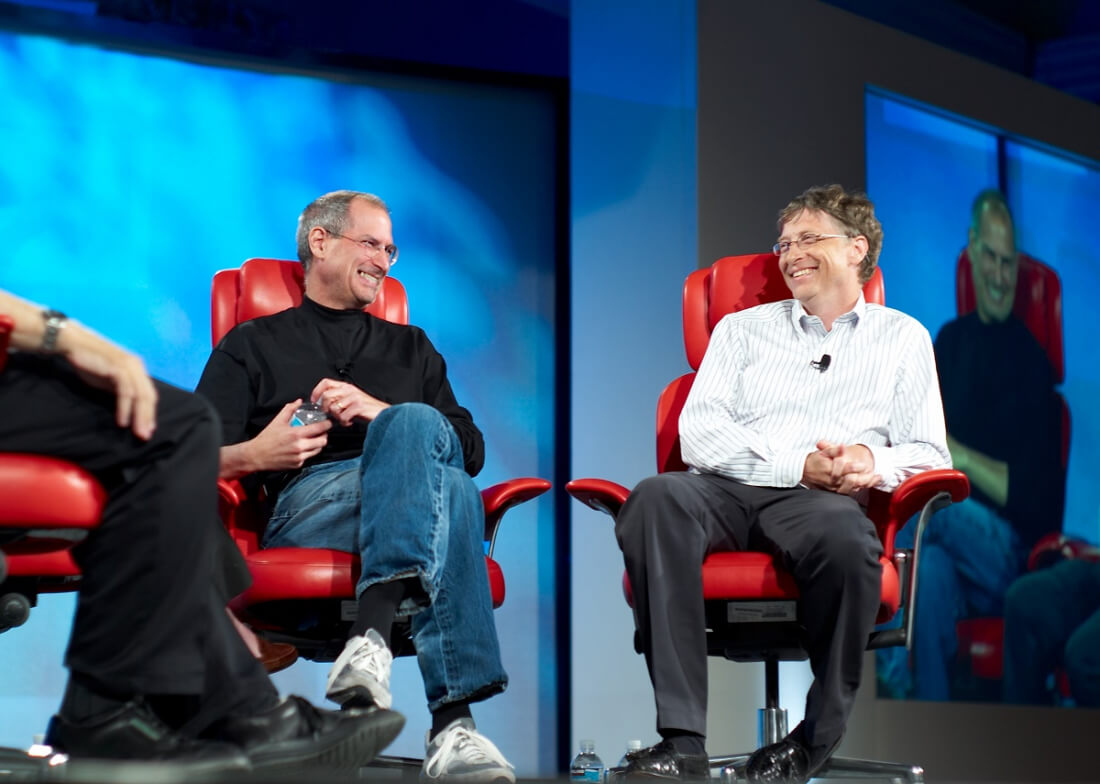
Hands the virtually famous tech rivalry of all fourth dimension, the battle between Microsoft and Apple has raged since the mid-80s and continues today, although to a far lesser extent. Whether it'southward PC vs. Mac, Windows vs. macOS, iPhone vs. Windows Mobile? (oh my), or, more recently iPad vs. Surface.
Things weren't e'er this way, though. The two companies worked together during the early 80s, with Microsoft developing software for the Apple II. Neb Gates even joked that his company had more people working on the Mac than Steve Jobs did.
The relationship went south after Jobs accused Gates of ripping off the Macintosh Os for Microsoft's version of a GUI Os: Windows. When faced with this accusation, Gates famously replied:
"Well, Steve, I call back in that location's more ane mode of looking at it. I call up it's more like nosotros both had this rich neighbor named Xerox and I bankrupt into his house to steal the Television prepare and found out that you had already stolen it."
The first graphical interface was developed by Xerox PARC, not Apple tree.
The pair had a complicated human relationship over the following decades. They were competitors in the home computer market, yet Apple depended on Microsoft developing applications such as Word and Excel for the Mac, so it licensed some of its technologies to its main competitor. On the flip side, Apple pursued a copyright lawsuit against Microsoft and HP, which it ultimately lost.
Forrard to 1997, Apple wasn't doing well before the company brought back Steve Jobs as function of the Next acquisition. During that year's Macworld Expo, Jobs infamously appear that Apple had signed a 5-year deal with Microsoft that would see the continued development of Internet Explorer and Office for the Mac. Microsoft too invested $150 1000000 into its rival, saving information technology from the brink of bankruptcy.
The following decade saw Apple tree's Lazarus-like resurgence. iPods fabricated the company cool again. The "I'm a Mac, I'm a PC" ads ran for about four years and 66 episodes, hammering home the Apple=hip PC=nerdy narrative. The iPhone made the company an undisputed industry leader and and so some, condign the most dominant tech business firm in history.
These days, Microsoft and Apple tree appear to have a fruitful relationship and in a fashion no longer pursue the same core interests. For a while, Microsoft'southward Bing search engine was used for Siri queries on the iPhone. Office for Mac and iPhone is flourishing in its ain detail manner. The mocking ads are still effectually to an extent. And Tim Cook said that while they do still compete, they can partner on more things than they compete on. "I'thou not a laic of holding grudges," the CEO said.
AMD vs. Intel
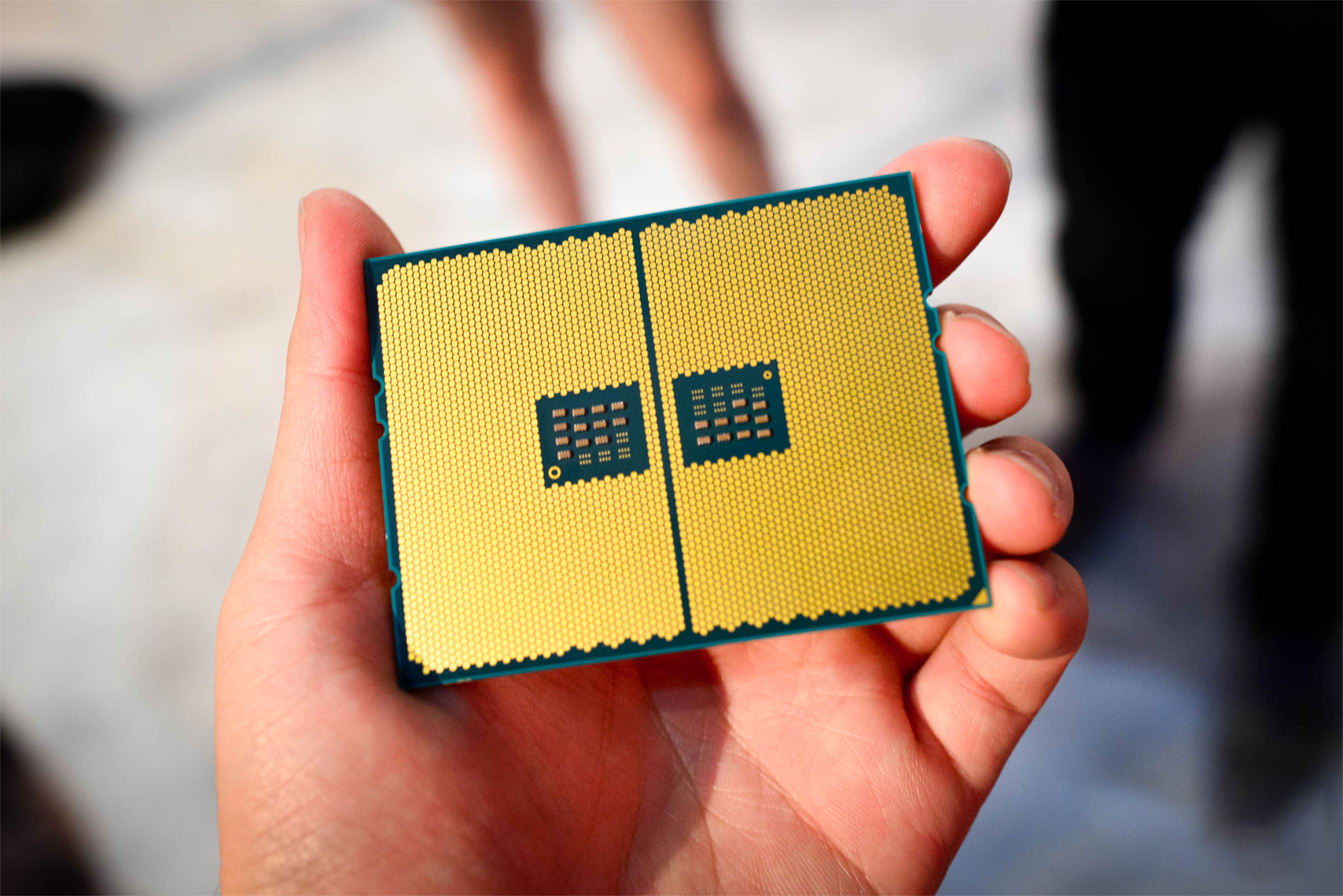
Intel and AMD have been effectually for decades. But even though both companies were founded in the tardily 60s, their rivalry didn't heat upward for another 20 years. Things were going well in the beginning. Intel entered into a cross-licensing agreement with AMD in 1976, and in 1982 the pair signed a technology substitution agreement, as IBM didn't want Intel to be its sole source of fries. The PC maker demanded a second-source manufacturer for its x86 microprocessor, and so a deal was signed that gave AMD access to Intel's 2d-gen 286 bit technology.
The human relationship started to fall apart in the mid-80s when Intel refused to requite AMD a license to its 386 microprocessor. AMD said this was office of a plan for its rival to create a PC chip monopoly, and in 1987 it accused Intel of breaking the contract they signed five years before. AMD petitioned for arbitration, and so began years of legal battles betwixt the pair.
In 1995, the companies agreed to settle all litigation every bit part of a global settlement. Intel got $58 meg, while AMD got $xviii meg and a perpetual license to the microcode found in Intel's 386 and 486 chips. However, more lawsuits followed, which ultimately led to a $1.4 billion EU fine against Intel based on anti-competitive practices toward AMD.
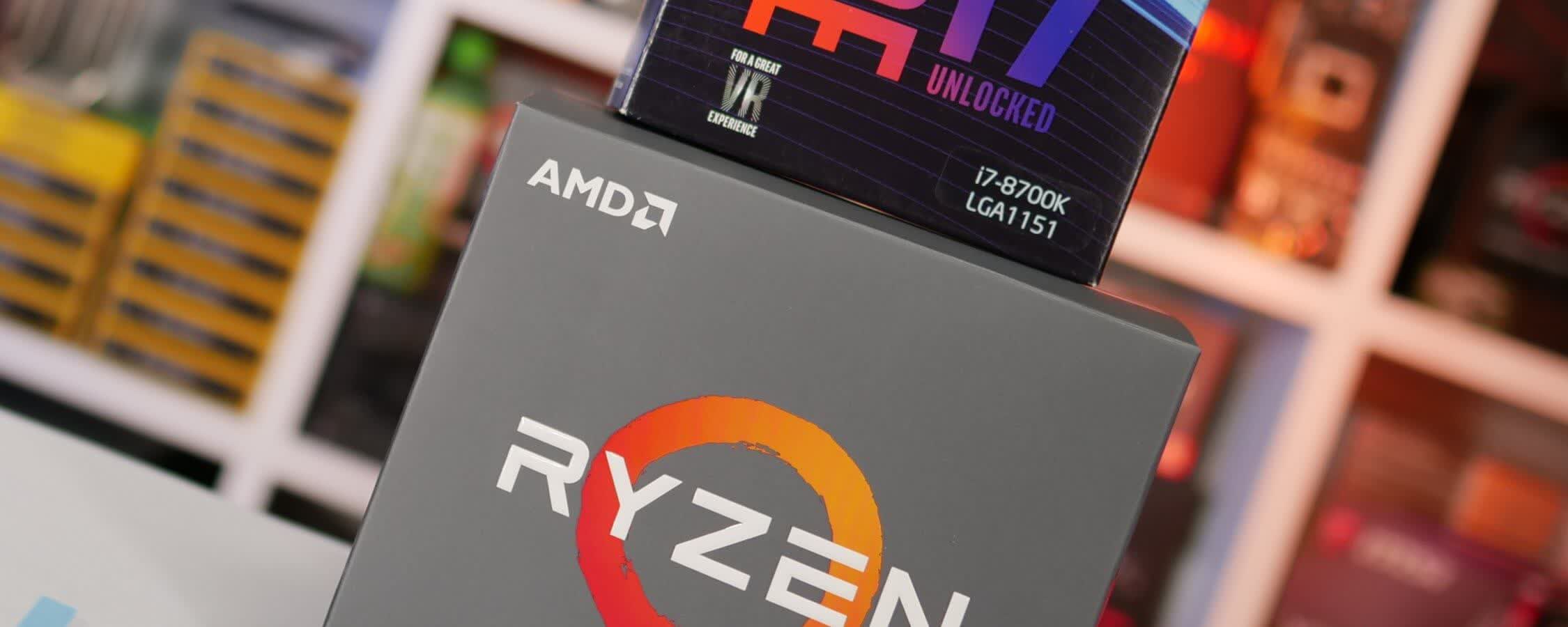
In the early 2000s, AMD was beating Intel handily for the first time with their successful Athlon chips, only the introduction of Intel'due south Core compages and the move to a tick-tock cycle model saw AMD relegated to be the budget option for over a decade.
While Intel continues to dominate the PC market at big, AMD has been relentless these by few years, gaining overwhelming goodwill in the enthusiast and builder's segment cheers to Ryzen and Threadripper processors. This technological atomic number 82 has slowly permeated to other areas where Intel usually reigned unopposed but AMD is at present presenting a real challenge: the highly lucrative server market place and in laptops, where AMD was not at all competitive for years.
AMD GPUs are also found in gaming consoles and both Sony and Microsoft are packing Radeon graphics on their next generation consoles. On the reverse front, Intel is joining the GPU wars soon, bringing the fight to AMD not only in the consumer marketplace just in the datacenter where GPUs are increasingly playing an important office.
Apple vs. Samsung
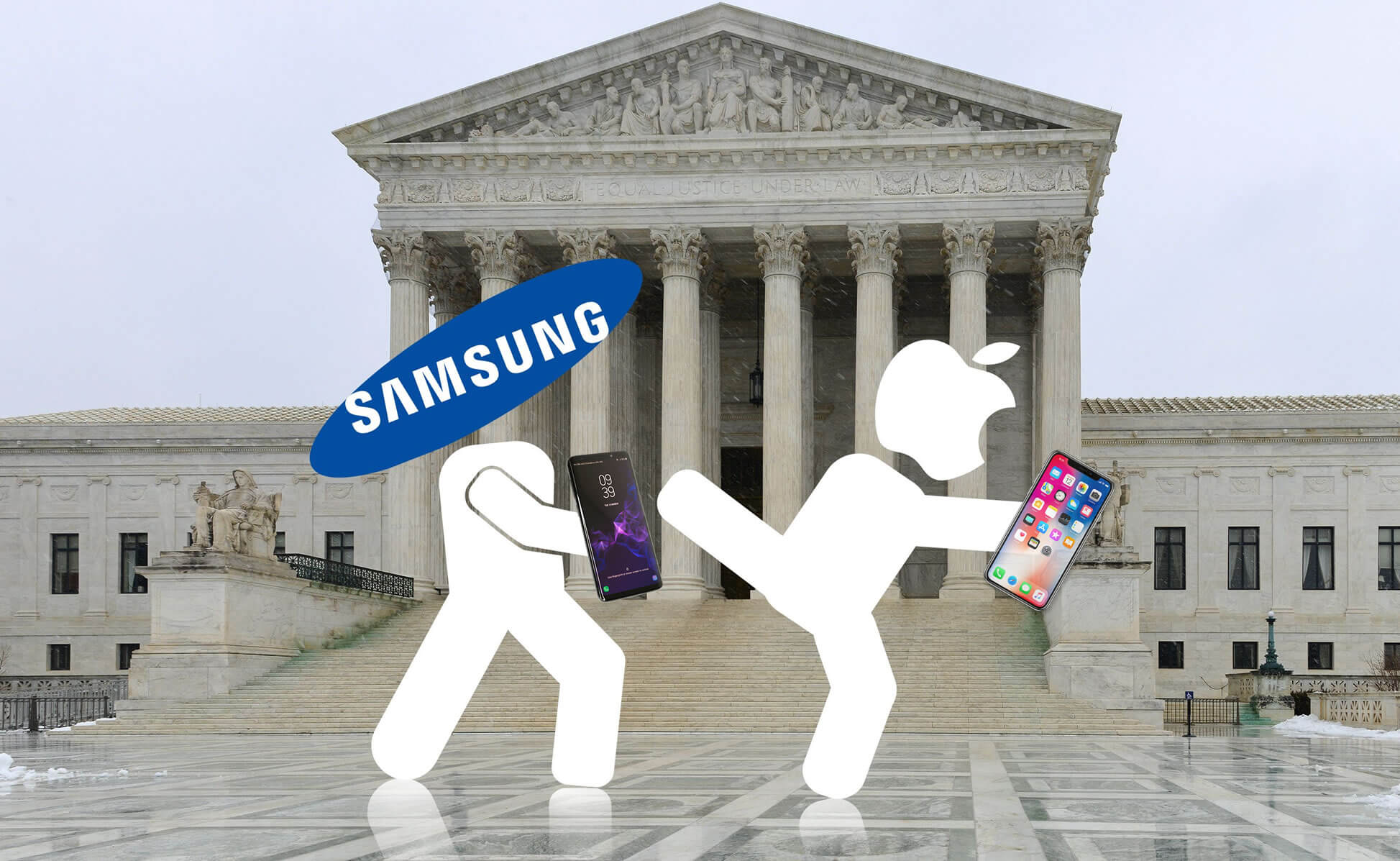
At that place are plenty of Android phones out there, but for a lot of people, it's a question of "Milky way or iPhone." The Cupertino company would no doubt argue that Samsung shouldn't even be a competitor, as it ripped off Apple'due south applied science and designs. Thanks to four dozen patent lawsuits, the ii companies sued and counter-sued each other across the courts for years. Apple even managed to get some of Samsung's older devices banned in the Us for infringing on some of its patents.
After nearly a decade of lawsuits, the companies settled in May 2022, awarding Apple tree $539 million that Samsung had to pay for infringing on its competitor patents. The resolution was widely seen equally a win for Samsung that by then had positioned every bit 1 of only two leaders in the smartphone business.
On the consumer side, Apple fans will say that the iPhone leads the way when information technology comes to ease of use, apps, and arguably, style. On the other hand, Galaxy owners will tell you lot iPhones are overpriced, and that their phones are superior cheers to wider range of customization, expandable memory, and the openness of Android. Truth is, both of their respective flagships, are evenly matched in more areas than ever before.
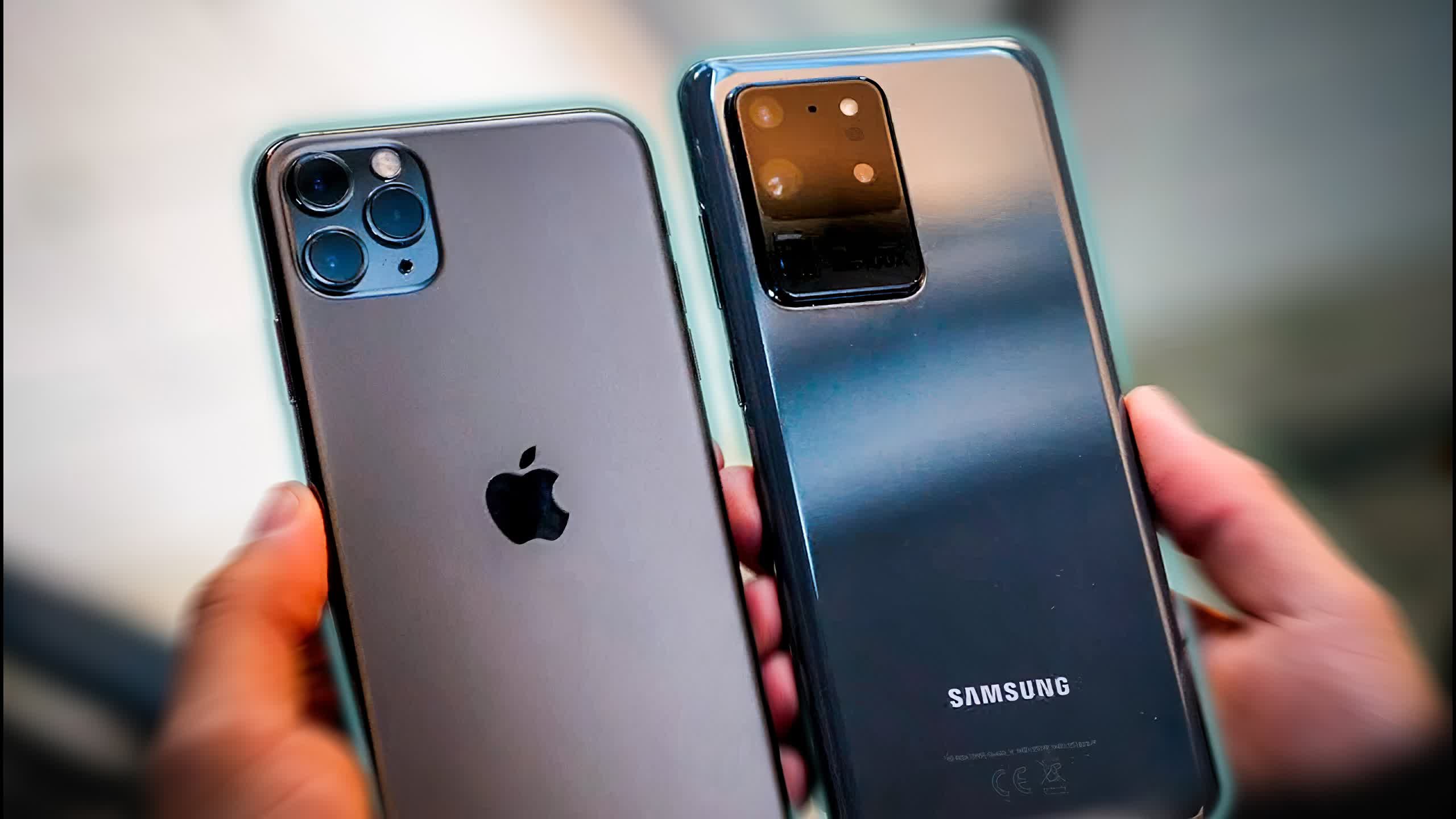
Fact remains both companies have produced the most popular smartphones in the world for the final few years, with Samsung staying ahead in sales volume, while Apple is known to be the nigh assisting of all vendors, with an entire ecosystem of devices, services and software that have uniquely position the company.
Add to all this Samsung's commercials that have jabs at iPhones, the antagonism between the companies' fans, and continuing accusations of copying, and you can see how this rivalry is likely to go along for many years to come.
Nintendo vs. Sega
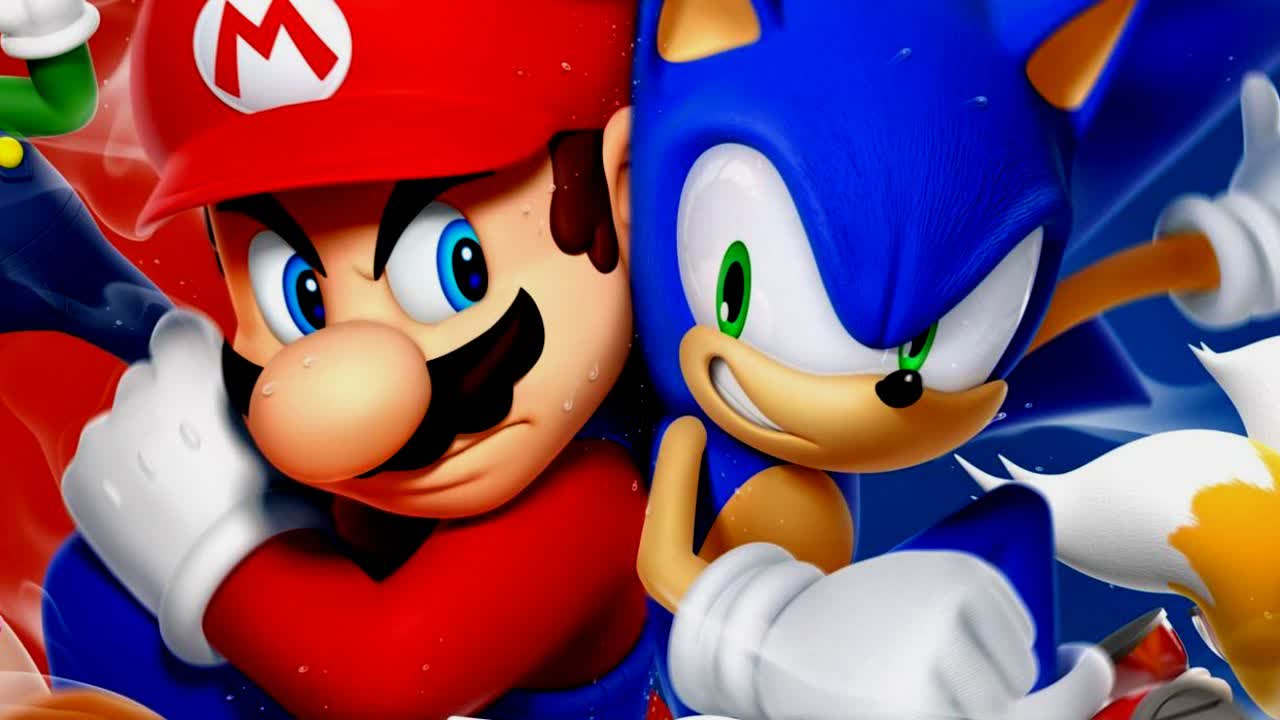
Nintendo was founded in 1889 as a playing card company, while Sega traces its origins to 1940 as a slot motorcar firm based in Hawaii. Many, many years subsequently, the pair would become fierce rivals in the world of arcade machines, handheld gaming devices, and, most famously, consoles. Sega'south arcade games fabricated it a ascendant force during the industry's golden age of 1978 to 1983, only Nintendo was experiencing success of its own with its Game & Watch handheld devices. The latter company's defining moment came when Donkey Kong arrived in arcades in 1981, bringing with information technology a defining icon: a carpenter called Mario (he didn't become a plumber until 1983's Mario Bros.).
Nintendo had already dipped its toe in the habitation console market in 1977 with the snappily titled Colour Boob tube-Game in Japan, which was available in four variations, each 1 boasting six versions of a single game, such every bit Pong. It released the far more successful Family unit Estimator, or Famicom for brusk, in Japan in 1983, the same twenty-four hours Sega launched its console - the SG-1000 - which turned out to be a failure for the visitor.
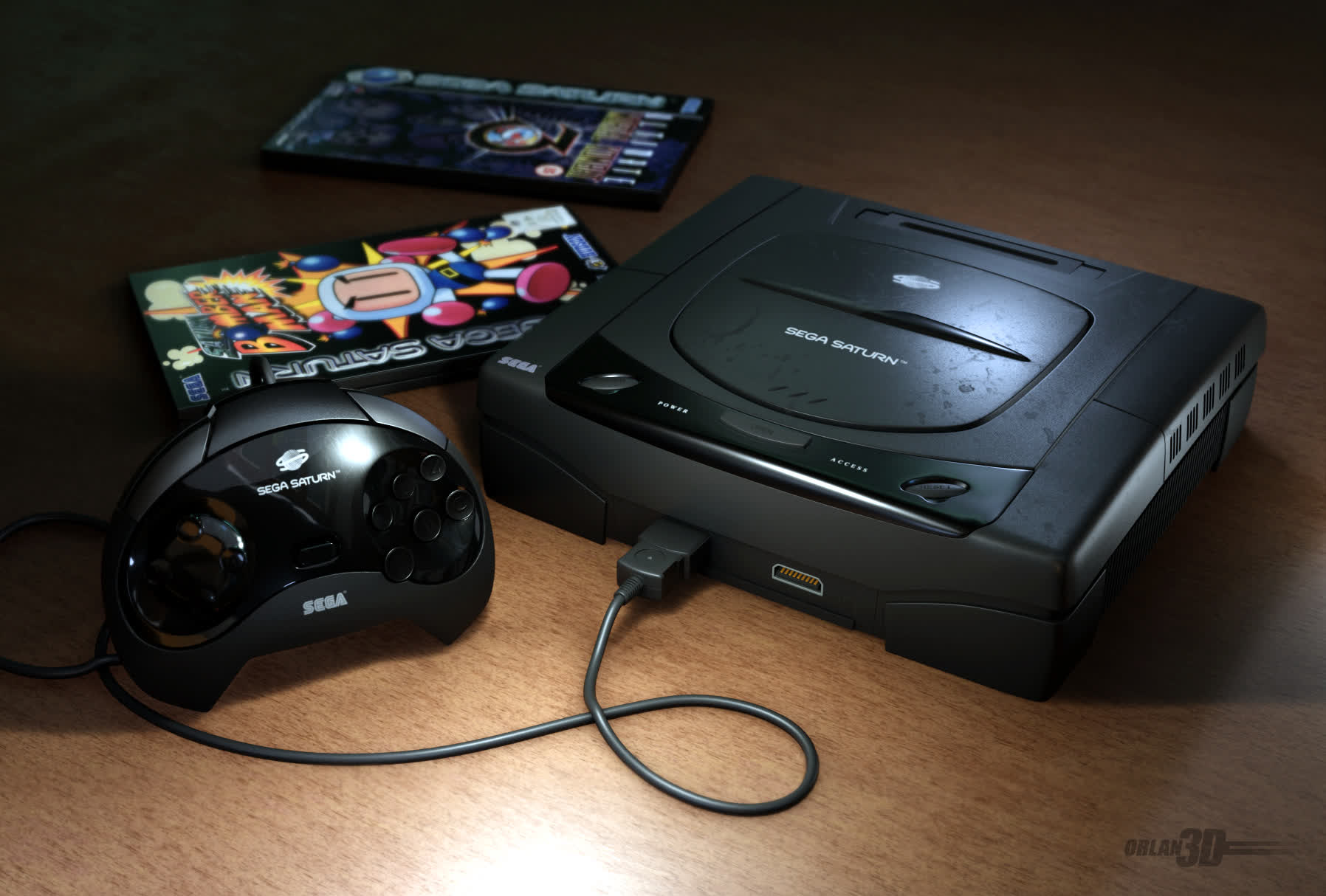
The two machines were eventually updated and redesigned for release in North America. After its prototype Nintendo Advanced Video Arrangement was met with an underwhelming response, Nintendo unleashed the NES in 1985. Information technology went on to get the best-selling console of the era, and while Sega'southward Master Organisation came to the states in 1986 to compete with Nintendo's machine, information technology couldn't match its rival's popularity.
The later on years brought more updated consoles from companies: the Super Nintendo Entertainment System (SNES) and the Sega Genesis. And with information technology came one of the earliest and probably most famous console wars, along with rival-baiting slogans. "Genesis does what Nintendon't," claimed Sega.
Various consoles and handhelds followed, and though Sonic the Hedgehog helped put Sega on top for a while, Nintendo's N64 and the appearance of the Sony PlayStation spelled the beginning of the end for Sega'southward console endeavors. The company'south last -- and some would say their all-time -- panel was the Dreamcast in 1998. The Dreamcast sold well in N America and Europe but struggled to make an impact in Nippon. Not long after the PlayStation 2 arrived, Sega decided to discontinue the Dreamcast. When the last i rolled off the assembly lines in 2001, information technology marked the end of ii decades of Sega consoles.
Nintendo remains a highly successful video game company and console maker. The Nintendo Switch has been a smashing success and the company more than than ever protects its IP that includes titles such every bit Beast Crossing, Donkey Kong, Mario, Zelda, Metroid, Splatoon, and Pokémon.
Meanwhile, Sega at present mainly acts as a game programmer and publisher, it is present in various platforms including mobile/smartphone gaming, and continues to reign in the more niche arcade business. It's also nowadays in popular civilisation in various forms, most prominently as of late with the film Sonic the Hedgehog, which set a new benchmark for movies based on video games.
Google vs. Apple tree
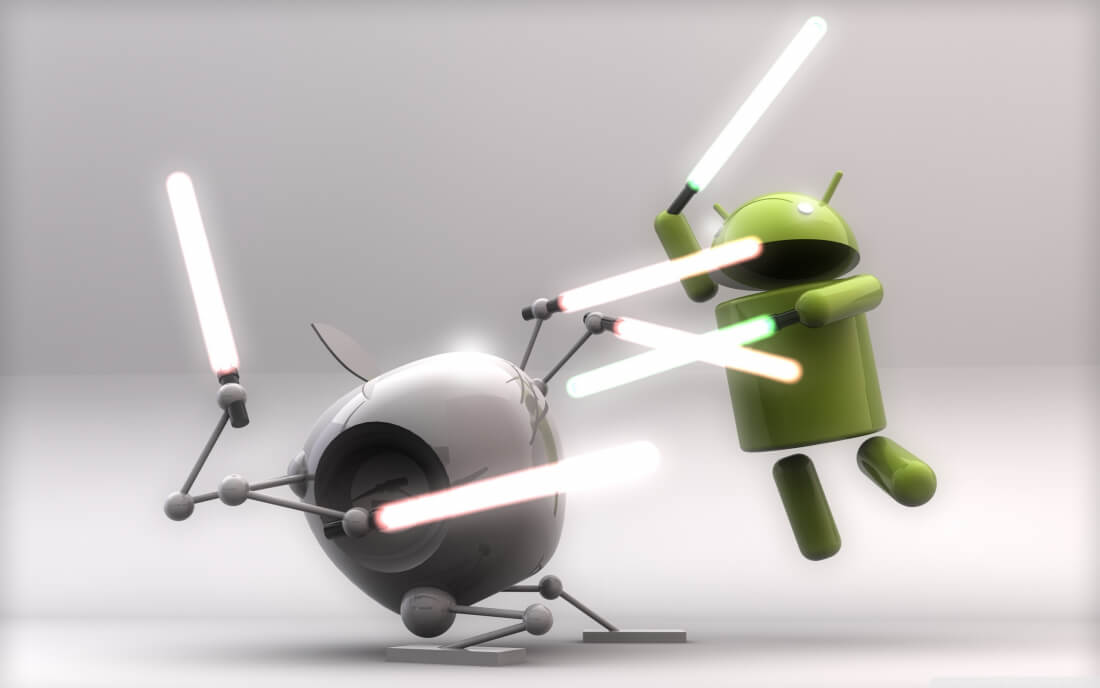
When HTC introduced an Android phone in January 2022 that shared many of the iPhone'southward virtually popular features, Steve Jobs famously said: "I will spend my last dying breath if I need to, and I will spend every penny of Apple's $40 billion in the banking concern, to right this incorrect."
"I'm going to destroy Android, because it's a stolen product. I'm willing to go thermonuclear state of war on this," Jobs added.
Things weren't always this mode though. When the get-go iPhone was unveiled in 2007, it came out of the box with Google search, Google Maps, and YouTube installed on every device. But it was Google's acquisition of mobile startup Android Inc. 2 years earlier that sowed the seeds of the companies' rivalry. Jobs was particularly angry at Android, taking it equally a personal betrayal.
Google'southward then-CEO Eric Schmidt was serving on Apple's board of directors when the Android mobile platform was announced in November 2007. He remained in this position until August 2009, when he was persuaded to resign. And then began the years of legal wars. Apple tree started patent litigation against HTC, Samsung, and Google partners such every bit Motorola Mobility partitioning. Jobs had told Schmidt in 2022: "I don't want your money. If you offering me $5 billion, I won't want it. I've got plenty of money. I desire you to stop using our ideas in Android, that'southward all I want."
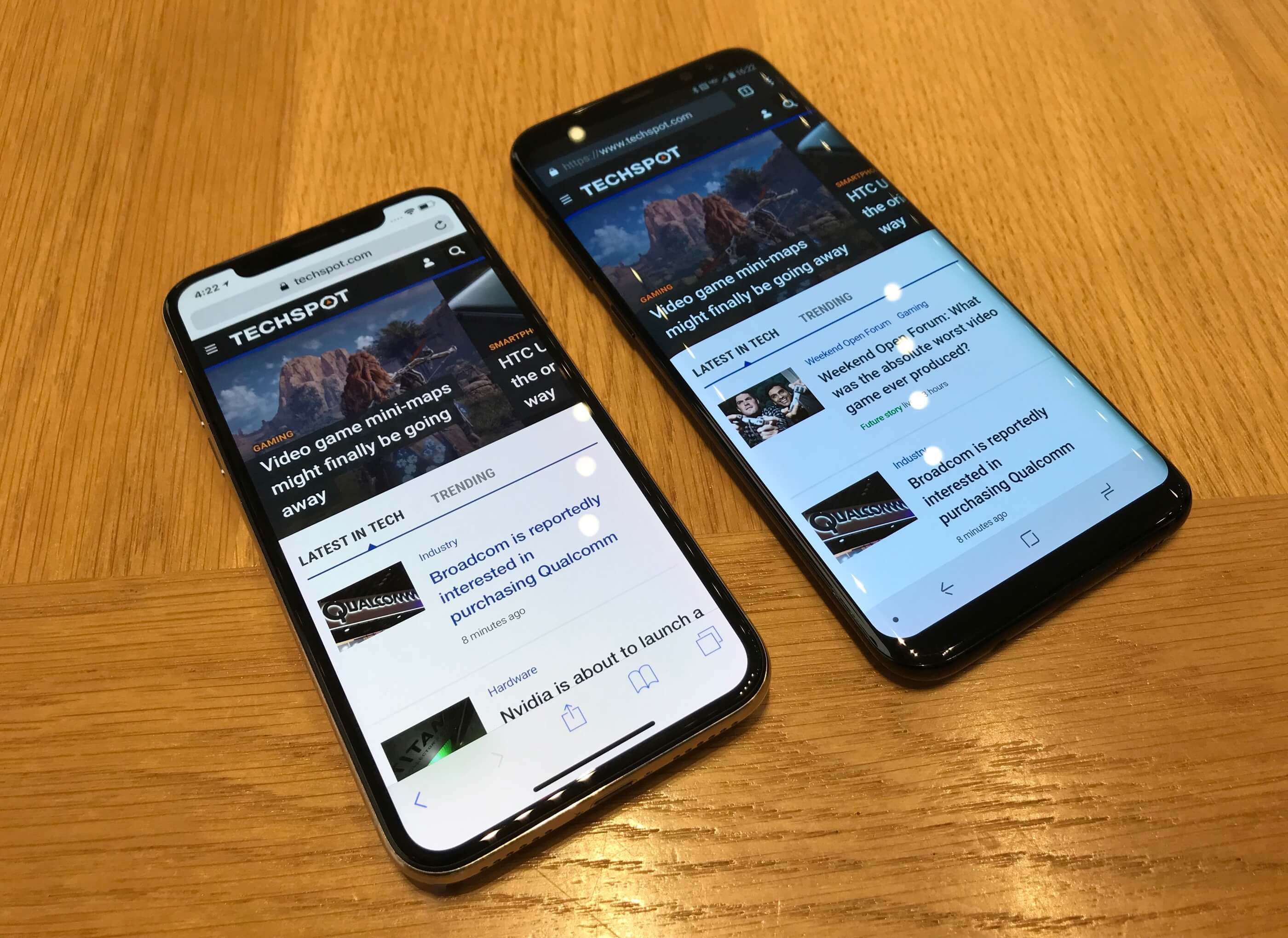
Relations striking a depression bespeak in 2022 when Apple replaced Google Maps with its own mapping solution in iOS vi. The software was so bad that Tim Cook personally apologized for that non long after launch. Information technology even led to Maps dominate Scott Forstall to exit the company. The fiasco is the reason why Apple tree launched its public beta program for iOS.
To this day, the pair take a relationship that's best described as complicated (see a pattern here?). The 2 companies still take potshots at each other and have competing products, merely Google pays Apple tree billions each year to keep information technology as the default search provider on iPhones. Apple gets a cut every time an iPhone or iPad user sees a Google ad on search results. The companies also collaborate in other areas, such as YouTube.
CEO Tim Cook is believed to accept a bigger fixation against Facebook and is more relaxed about Google as a competitor, in fact, he was caught proverb non long agone "(Google) search engine is the all-time." For the better role of the last decade, Apple and Google take taken top spots equally the world'southward near valuable brands, with Google usually sitting right below the fruity company.
Other Rivalries in the Making
Many of these don't all the same possess the history or savagery to make it to our top 5, but in a few years, who knows. Which practice you lot call back has the most potential?
- Nvidia vs. Intel vs. Qualcomm
- Big Tech vs. The U.S. regime
- Microsoft vs. Amazon vs. Apple tree
- Google vs. Facebook
- Alibaba vs. Tencent
- Salesforce vs. Oracle vs. SAP
- Netflix vs. Disney vs. Amazon
- Tesla vs. the automotive industry
- SpaceX vs. Bluish Origin
Editor's Note: This characteristic was originally published on Oct 2022. We've since revised it, bumped it and made it into a video characteristic.
Source: https://www.techspot.com/news/66730-biggest-rivalries-computing-history.html
Posted by: bramanmoafflurs.blogspot.com


0 Response to "Biggest Rivalries in Computing History"
Post a Comment